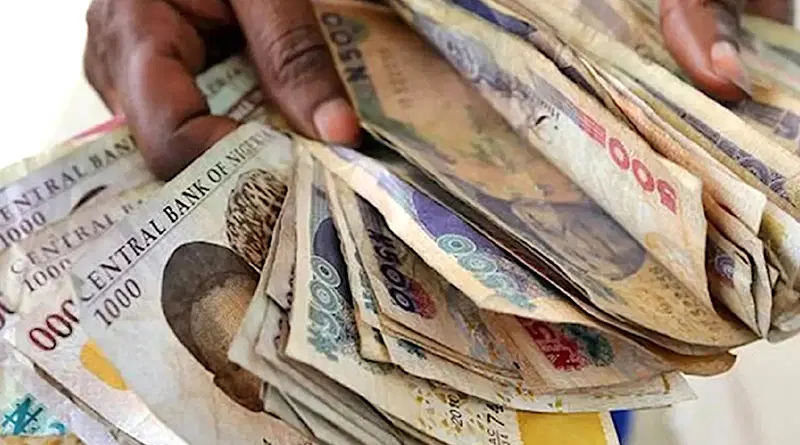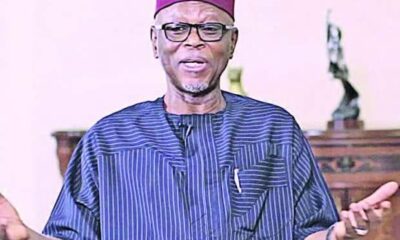Business
Nigeria’s money supply surges 75.9% in 2yrs

… as banks’ credit to govt increases
Money supply to Nigeria’s economy has significantly surged to a record N117.8 trillion in two years, amid growing banks’ credit to the government.
Vanguard findings from the data released by the Central Bank of Nigeria, CBN, shows that money supply, M3 grew by 75.9% to N117.783 trillion in September 2025 from N66.944 trillion in the same period 2023, reflecting excess liquidity in the economy.
Also banks’ credit to the government went up to a record N24.158 trillion in September 2025.
According to the CBN’s Money and Credit report, credit to the government rose by 9.1 % in two years ended September 2025, up from N22.137 trillion in September 2023.
The increase, according to analysts highlights the growing reliance on bank financing by the government.
Further breakdown of the money supply for the two year period shows that in the first half 2025, H1’25, it grew by 80.6% to N117.250 trillion from N64.906 trillion in the same period 2023; while in the first quarter 2025, Q1’25, it went up by 112 % to N115.815 trillion from N54.628 trillion in Q1’23.
Meanwhile, a review of banks’ credit to government in the two year period shows that in H1’25, it declined by 30.6 % to N21.662 trillion from N31.233 trillion and also in Q1’25 it nosedived by 10.7% to N24.589 trillion from N27.529 in Q1’23.
On a Year-on-Year, YoY, the data shows that banks’ credit to the government recorded a 38.8% decline in September 2025 to N24.2 trillion from N39.5 trillion in September 2024.
Commenting on the implication of rising money supply, David Adonri, Analysts and Executive Vice Chairman at High Cap Securitoes Limited, said: “Increasing the money supply in Nigeria can stimulate economic growth by lowering interest rates and encouraging spending and investment.
“However, if the increase is not managed carefully and outpaces economic growth, it often leads to inflation, where there is “too much money chasing too few goods”.
“This can lead to higher prices for consumers and negative impacts such as balance of payment deficits and decreased industrial capacity utilization.”
For banks’ credit to government, he said: “When government credit level rise, it indicates that it is increasingly borrowing from the financial sector, particularly from domestic banks and other lenders. “This rise in borrowing generally reflects an increase in government debt, as funds are sought for financing various operations such as infrastructure projects, social programmes, and budget deficit coverage.”
-

 News10 hours ago
News10 hours agoKaduna, police dismiss church attack, 100 worshippers’ kidnap
-

 News10 hours ago
News10 hours agoThe job scam syndicate luring Nigerians into Ukraine-Russia war
-

 Sports10 hours ago
Sports10 hours agoAfter AFCON Exploits, Super Eagles Rank Among Africa’s Top Three
-

 Metro10 hours ago
Metro10 hours agoFather of Kano murder suspect demands son’s death
-

 News9 hours ago
News9 hours agoIntersociety accuses New York Times of falsifying report, says Christian genocide data verified
-

 News10 hours ago
News10 hours agoAmnesty deal: Outrage mounts as Katsina moves to release 70 bandits
-

 Politics10 hours ago
Politics10 hours agoADC, Obidient collaboration will unseat APC – Odigie-Oyegun
-

 Metro10 hours ago
Metro10 hours agoI’ll Never Stop Having Children – Obasanjo


















